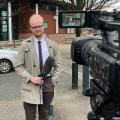
ONLY four defibrillators in Warrington can be accessed every day of the week, at any time.
That's according to data from HeartSafe - a supplier of Automated External Defibrillators (AEDs).
HeartSafe uses an interactive mapping system which allows defibrillator owners to register with the company, showing that they are happy to share their AED with the community.
Lifesaving defibrillator installed at Hood Manor Community Centre https://t.co/Ed30OpnB3l #GreatSankey #Warrington #LatestNews pic.twitter.com/eNc7n5BayB
— Great Sankey Parish (@GreatSankeyPC) June 19, 2019
According to the data, there are 39 AEDs in Warrington that can be used by the wider community.
The company stresses that it does not list the location of every single AED in Warrington, just the ones registered with them as being accessible by the community - in fact, HeartSafe says: "There may be many hundreds of non-registered defibrillators."
However, looking at the locations provided by HeartSafe shows that just four defibrillators in Warrington can be accessed by the community 24/7.
A number of communities across the town do not have any community defibrillators registered with HeartSafe, the data shows.

Those communities are:
- Burtonwood,
- Winwick,
- Croft,
- Thelwall,
- Penketh,
- Padgate,
- Walton,
- Bruche,
- Glazebury
The British Heart Foundation says: "To help someone who is in cardiac arrest survive, a defibrillator needs to be found as quickly as possible.
"For every minute it takes for the defibrillator to reach someone and deliver a shock, their chances of survival lower."
*New defibrillator at Esso Culcheth*
— Councillor Wendy Maisey OBE (@WendyMaisey) July 29, 2022
A great addition to our village which will no doubt save lives with just 4 easy steps.
This defibrillator is at the Esso garage on Warrington Road.
Thank you to Culcheth Parish Councillors and all involved for making this happen. pic.twitter.com/4dmCHHYJ8Y
Advice given by the North West Ambulance Service (NWAS) about what to do when someone is having a suspected cardiac arrest is as follows:
If you come across someone in cardiac arrest just think DRS ABC:
- Danger – keep calm and check the scene is safe to approach
- Response – shout “are you alright?” and shake the person’s shoulders
- Shout for help – send someone for help and call 999
- Airway – tilt the head back gently to open the airway
- Breathing – check for normal breathing by looking at the chest to see if it is rising and falling or listening for abnormal sounds such as infrequent and noisy gasps
- Compressions – if the patient is not breathing normally, start hands-only CPR pushing hard and fast in the centre of the chest.
Again, HeartSafe stresses that it does not provide a comprehensive list of AEDs across the country, only the ones registered with them.
When calling 999 about a suspected cardiac arrest, the operator will direct you to the nearest defibrillator available for use.



Comments: Our rules
We want our comments to be a lively and valuable part of our community - a place where readers can debate and engage with the most important local issues. The ability to comment on our stories is a privilege, not a right, however, and that privilege may be withdrawn if it is abused or misused.
Please report any comments that break our rules.
Read the rules hereLast Updated:
Report this comment Cancel